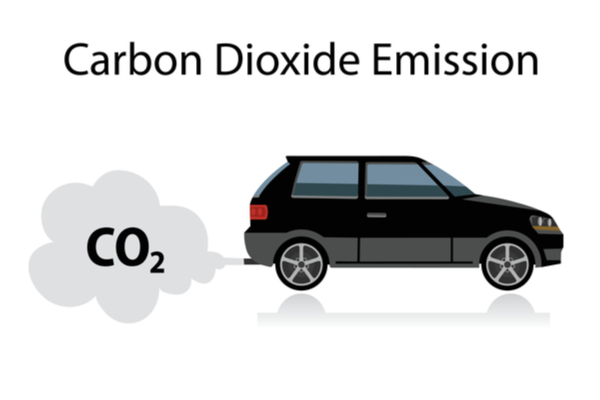The Damages Caused by Carbon Dioxide Emissions

The Damages Caused by Carbon Dioxide Emissions
carbon dioxide (CO2) emissions
The global automotive industry has witnessed remarkable growth over the years,
providing us with a vast array of vehicles to choose from.
However, this surge in vehicular production and usage comes with a significant environmental cost,
primarily in the form of carbon dioxide (CO2) emissions.
The Carbon Footprint of Vehicles:
Carbon dioxide, a greenhouse gas, is a major contributor to climate change.
One of the primary sources of CO2 emissions worldwide is the burning of fossil fuels in vehicles.
When gasoline or diesel is combusted in an internal combustion engine,
it releases carbon dioxide into the atmosphere.
This process, which occurs daily on a global scale,
contributes to the accumulation of CO2 in the Earth’s atmosphere,
trapping heat and leading to global warming.
Health Implications:
1. Air Pollution: Carbon dioxide emissions from vehicles are often accompanied by other harmful pollutants such as nitrogen oxides (NOx), particulate matter (PM), and volatile organic compounds (VOCs). These pollutants can lead to poor air quality, posing severe health risks to humans. Long-term exposure to polluted air is associated with respiratory problems, cardiovascular diseases, and even premature death.
2. Climate Change: The increase in atmospheric CO2 levels, driven by vehicular emissions and other human activities, contributes to global climate change. This phenomenon results in more frequent and severe weather events, rising sea levels, and disruptions to ecosystems, which have cascading effects on human societies and biodiversity.
Environmental Consequences:
1. Ocean Acidification: A significant portion of the carbon dioxide emitted from vehicles is absorbed by the oceans, leading to a process known as ocean acidification. This harms marine life, particularly coral reefs, shellfish, and other organisms with calcium carbonate shells or skeletons. This, in turn, impacts the entire marine food chain.
2. Habitat Loss: Climate change driven by CO2 emissions disrupts ecosystems and can lead to habitat loss for numerous species. Many plants and animals are struggling to adapt to the rapid changes in temperature and weather patterns.
The Path Forward:
Addressing the damages caused by carbon dioxide emissions from vehicles requires a multifaceted approach:
1. **Transition to Electric Vehicles (EVs)**: Electric vehicles produce zero tailpipe emissions and are a promising alternative to traditional internal combustion engine vehicles. Governments and individuals can incentivize and adopt EVs to reduce CO2 emissions.
2. **Improved Public Transportation**: Expanding and enhancing public transportation systems can reduce the number of vehicles on the road, thus lowering emissions. Investments in efficient and eco-friendly public transit options are essential.
3. **Alternative Fuels**: The development and utilization of alternative fuels, such as hydrogen and biofuels, can significantly reduce the carbon footprint of transportation.
4. **Promote Sustainable Practices**: Encouraging eco-friendly driving habits, such as carpooling, using bicycles, and walking, can reduce the overall demand for gasoline and diesel.
5. **Policy and Regulation**: Governments must enact and enforce stricter emissions standards and provide incentives for automakers to produce more fuel-efficient and environmentally friendly vehicles.
Conclusion:
The damages caused by carbon dioxide emissions from vehicles are undeniable, affecting both human health and the environment. It is crucial for individuals, governments, and industries to recognize the urgency of addressing this issue and transition towards sustainable transportation options. By adopting electric vehicles, improving public transportation, and implementing policies that reduce CO2 emissions, we can collectively mitigate the harmful effects of vehicular carbon dioxide emissions and work towards a more sustainable and healthier future.

